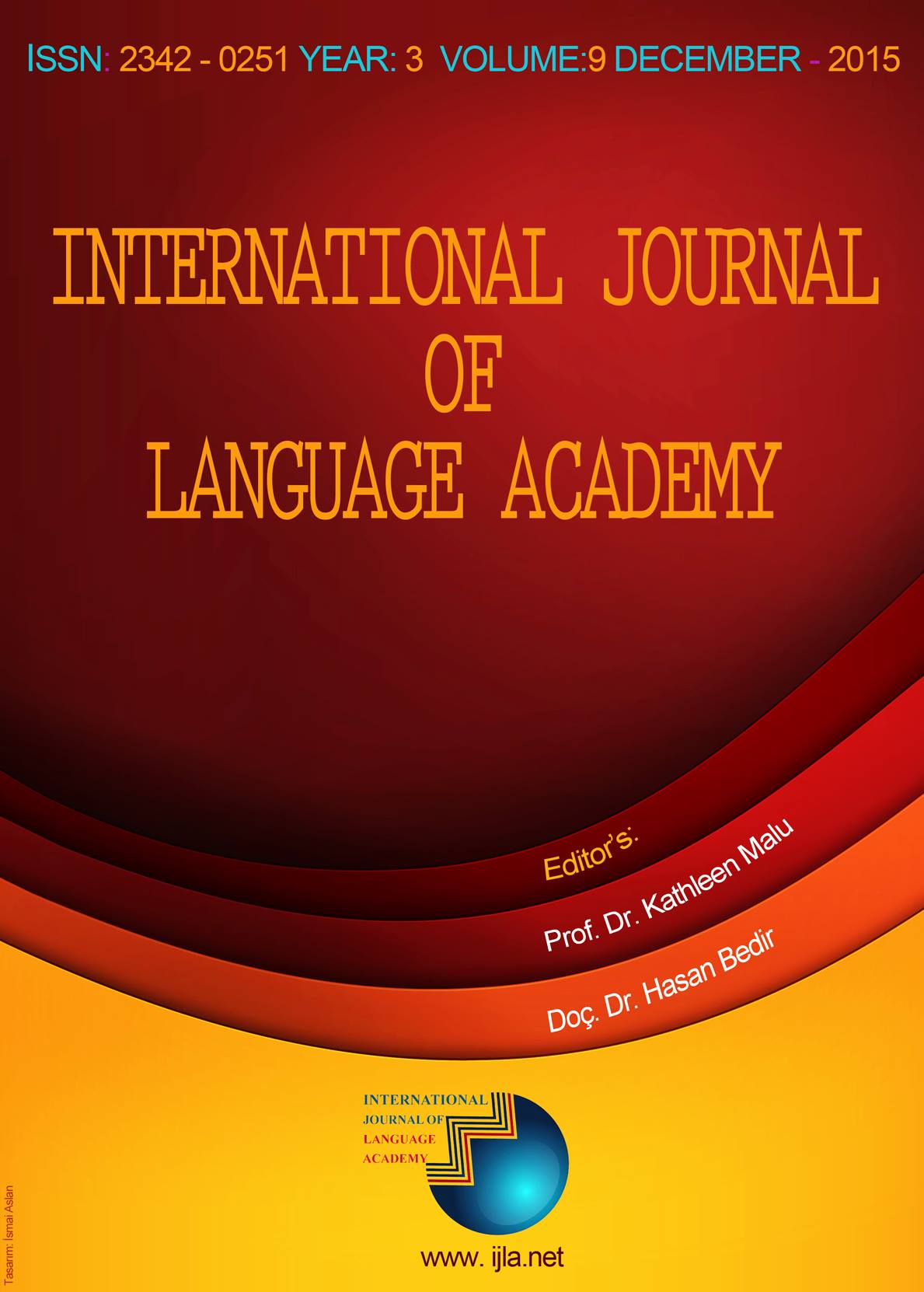Author :
Abstract
İngiliz edebiyatı Viktorya dönemi oyun yazarı olan Bernard Shaw aynı zamanda Britanya’daki birçok ideolojik oluşuma yön vermiş tanınmış bir siyasi düşünürdür. Shaw'un Sosyalizm, Fabiancılık, Komünizm, anti-demokrasi, Feminizm, felsefe ve diktatörlük konusundaki ideleri siyasi kişiliğiyle sayısız yazıları içinde yansıtılmış olur. Yoksulluk içinde büyüyen Shaw, Henry George'un Progress and Poverty (Gelişim ve Yoksulluk) üzerine verdiği konferansa katıldıktan sonra sosyalizmi benimser ve Fabian Derneği ile Fabian Hareketi’nin köklü bir gücü olarak ilerler. Kendini sadece bir komünist olarak duyurmaz, aynı zamanda kendi ürettiği Yaratıcı Evrim ve Yaşam Gücü teorileri içinde Nietzsche'nin Süpermen (üst-insan) kavramına yönelik çatışmaları ortaya koysa da bir ateist olduğunu kamuoyuna ilan eder. Shaw Viktorya toplumunu düzeltmek için tüm bireyleri kucaklayan görüşlerini özenle kaleme alır ve bunları duyurur; bunlar bir taraftan işçi sınıfını teşvik edici, kadın platformu yararına düşünceler iken, diğer taraftan da sınıfsal farklılıkları reddeden ifadelerdir. Bernard Shaw içinde yaşadığı iki dünyayı keşfetmek ister ve gözlemlediklerini kaleme döker—Batılı bir düşünür olarak, onun dünya görüşü Viktorya döneminin en talihsiz, en hatırlanmaz ve en çok gözden kaçırılan kısımlarına yoğunlaşır. Shaw’un sosyal ve politik tutumları, mecazi ve mitolojik bakış açıları ve birey ve toplumun politikalarına karşı bir silah olarak kullandığı edebi kalemi bu çalışmada irdelenecektir.
Keywords
Abstract
Being a Victorian playwright of British literature, Bernard Shaw is also a prominent political thinker who gave route to many ideological reformulations in Britain. Shaw’s political personality, reuniting Socialism, Fabianism, Communism, anti-democracy, Feminism, Philosophy, and Dictatorship was mirrored within his innumerable writings. Having grown in poverty, Shaw hugged socialism after his participation to Henry George’s Progress and Poverty lecture, and came to be an enduring dynamism in the Fabian Society and Fabian Movement. Not only did he announce himself as a communist, but he also publicized that he was an atheist though he brought the dichotomies of Nietzsche’s Übermench within his theory of Creative Evolution and Life Force. Shaw diligently penned and voiced in the best interests of its all-embracing prophecy to renovate Victorian society, encouraging the working-class, women's platform, while, on the other hand, discarding the class discrepancies. Bernard Shaw desired to go and reconnoiter both worlds, and he put pen to paper as what he observed—as a Western thinker, his worldview came to terms with the most unfortunate, most disremembered and conceivably most overlooked part of the Victorian. Shaw’s social and political moves, his metaphorical and mythological standpoints, his ‘literal pen’ as a weapon against retrogressive policies of the ‘individual’ and community are tackled in this study.
Keywords
- Bennet, A. (1976). “Three plays for puritans” in George Bernard Shaw (Edt by T. F. Evans), London and New York: Routledge.
- Bloom, H. (2005), Dramatists and dramas. Philadelphia: Chalsea House Publishers.
- Ellis-Fermor, U. (1947). “The review of history of late nineteenth century drama” in The Review of English Studies Vol. 23, No. 90.
- Ervine, St. John G. (1972). Bernard Shaw: His life, work and friends. William Morrow&Co.
- Fortich, I. F. (2010). “Nietzsche’s Übermensch: The Notion Of A Higher Aristocracy Of The Future” in Civilizar 10 (18).
- Ganz, A. (1983). George Bernard Shaw. Hong Kong: Macmillan.
- Griffith, G. (1993). Socialim and Superior Brains: The political thought of George Bernard Shaw. New York: Routledge.
- Kauffmann, S. (1986). “George Bernard Shaw: Twentieth century victorian authors” in Performing Arts Journal, Vol. 10. No. 2.
- (Ed) Laurence, D. H. (1988). Collected letters. London: Max Reinhardt.
- (Ed) Laurence, D. H. (1995). Bernard Shaw theatrics. Toronto: University of Toronto Press.
- Lewton, P. (1979). “George Bernard Shaw: Theory, language, and drama in the nineties” in The Yearbook of English Studies, Vol. 9, Theatrical Literature Special Number.
- Nicollin, A. (1946). History of late nineteenth century drama, Cambridge: Cambridge University Press.
- Pathak, D. N. (1985). George Bernard Shaw: His religion and values. Delhi: Mittal Publications.
- Peters, Sally (1998). Bernard Shaw: The ascent of the Superman. Yale University Press.
- Rodgers, Daniel T. (1987). Contested truths. Canada: Harvard University Press.
- Roy, R. N. (1976). George Bernard Shaw’s historical plays. London: Macmillan.
- Schwartzman, Jack (1990). “Henry George and George Bernard Shaw: Comparison and contrast: The Two 19th Century Intellectual Leaders Stood for Ethical Democracy vs. Socialist Statism” in The American Journal of Economics and Sociology Vol. 49, No. 1.
- Shaw, G. B. (2007). Back to Methuselah, Fairfield: 1st World Library 2007.
- Shaw, G. B. (1992). Pygmalion and Major Barbara, New York: Bantam Dell.
- Shaw, G. B. (2014a). Preface to Major Barbara. E-book, The University of Adelaide.
- Shaw, G. B. (2014b). Man and Superman. E-book, The University of Adelaide.
- Shaw, G. B. (2012). The ıntelligent woman’s guide to socialism, Capitalism, Sovietism and Fascism. Surrey: Alma Classics Ltd.
- Silagi, M. and Susan, N. F. (1989). “Henry George and Europe: As dissident economist and path-breaking philosopher, he was a catalyst for british social reform” in American Journal of Economics and Sociology, Vol. 48, No. 1.
- Suleiman, A. (2010). George Bernard Shaw. Baghdad: Mena Printing.





